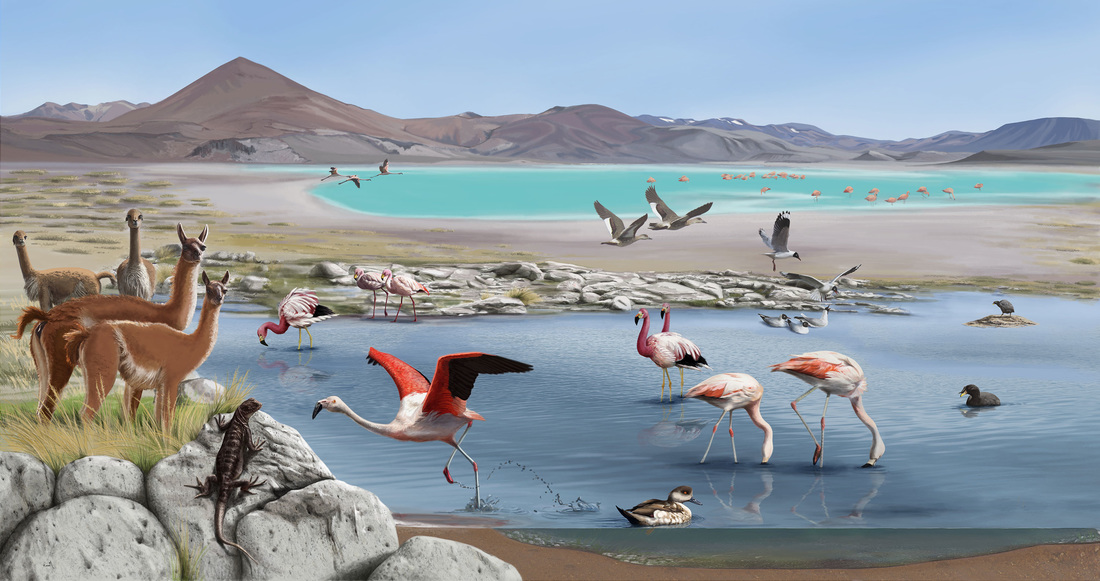Log: 7/16/2021
This week: low-density ancient urbanism, an extraction-free Atacama Desert, AI and climate change, and Wakanda.

The real urban jungle: how ancient societies reimagined what cities could be, Patrick Roberts
Most cities around the world, while still considerably varied, seem to have comparable density, layout, and land-use. The ancient tropical cities of the Khmer and Classic Maya empires were more sprawled and interspersed with agricultural plots and “forest gardens”. In general they sound more integrated with the environment–perhaps easier because unlike the cities that would come later they were not yet inundated with toxic industry. Whether or not the impact of urban living shakes out to be an environmental net positive or negative is something I’ve meant to read more about but yet haven’t gotten around to. But these examples of different forms of urban life are nice to think about, even if they occurred under tremendously different circumstances.
Lithium Landscapes: From Abstract Imaginaries to Deep Time and Multi-Scalar Topologies, Samir Bhowmik
A reflection on the vast timescales that give rise to lithium and the earthbound terraforming (human extraction of) lithium gives rise to. I especially like this painting:

Portuguese artist Mafalda Paiva’s painting Lithium Fields, which depicts the Atacama Desert reminds us of what could have been—a paradise instead of an extractive landscape. In the artist’s vision, “the salt flats hum with a preternatural vibrancy, an effect produced by the exaggerated density of species and radically foreshortened topography.”
These Are The Startups Applying AI To Tackle Climate Change, Rob Toews
I’m skeptical that AI can be applied to substantially help mitigate climate change. There are specific applications that seem to be useful, e.g. around power efficiency, the development of new materials, etc. It probably has a role to play but hard to say whether it will be much more than other technologies treated with far less fervor–this article breathlessly states: “Artificial intelligence is the most powerful tool that humanity has at its disposal in the twenty-first century.”
I wonder if the wide proliferation of AI that many of its proponents either foretell or actively try to engineer through their own companies/investments will net out positive or negative in terms of carbon, given the intense energy requirements to train the largest, most sophisticated models. If AI is commodified and so as unnecessarily ubiquitous as microchips then perhaps it’ll come out net positive emissions.
This list of companies claiming to use AI against climate change is interesting, especially because it reveals what it means to publications like Forbes to “tackle” climate change. Several of the companies are focused on identifying climate risks or managing climate insurance for businesses. A great deal of time is spent companies applying AI to carbon offsets, which looks more like companies bending over backwards to legitimize a completely ineffective/actively harmful way of “addressing” climate change rather than actually working to reduce their emissions. The “solution” to offsets sounds like more surveillance infrastructure.
Wakanda
I’m not a big fan of the MCU, but the creation of a cinematic universe opens up a lot of storytelling and character possibilities so I reluctantly follow along every so often to see what they’re doing with that capacity. I wish it were some other more interesting, less indulgently militaristic fictional universe that had the resources to do something like that. Instead we get Marvel and soon the Mattel Cinematic Universe.
Ever since I found Wakanda listed as a US free trade partner I wondered how Wakanda might relate to other countries and how people outside perceive it. While reading Doomwar I came across this off-handed mention from Shuri:
I’m so curious about the terms of that loan. The first Black Panther movie wrestled a bit with Wakanda’s responsibility towards its neighboring nations or developing nations (as it used to posture as) but if I recall it never really answered that question. I haven’t watched Black Panther recently so forgive any misremembering, but I believe Killmonger was just defeated without any satisfying resolution to his analysis/proposals about spreading Wakanda’s wealth. IIRC he proposed distributing vibranium for uprisings across the world–even if T’Challa disagreed with violent uprisings, maybe the spreading of that wealth is worth considering. Although given what Shuri says here, maybe that’s exactly what they’re doing. But again, I wonder on what terms?
I wonder if in some ways the now-opened Wakanda is perceived in similar ways to how China is perceived in our world. I don’t know what it takes to qualify as a “superpower” but I imagine Wakanda checks off many of those boxes. Surely many people in the MCU pin their hopes on Wakanda to usurp the planetary hegemons…sadly, they’ll probably be disappointed.

